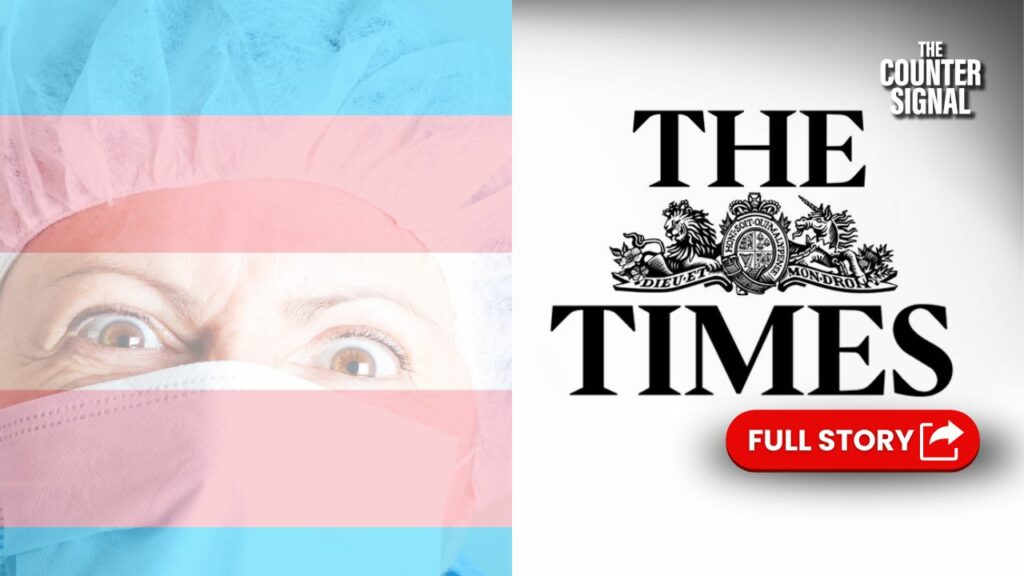The mainstream media is finally coming to the realization that so-called “gender affirming care” for confused youth might actually be unethical and, in fact, “quack medicine.”

The recent exposé of the world’s leading authority on transgender care (WPATH), coupled with the UK banning the prescription of puberty blockers to minors 16-years-old and under, has led to the Times to release a scathing piece on the practice altogether, particularly on vulnerable minors.
In a piece titled “The Times view on treating gender with drugs: Quack Medicine,” the outlet stated “The NHS is right to ban the routine prescription of puberty blockers. Young lives have been damaged by this potentially life-changing treatment for gender dysphoria.”
“The use of these substances to impede physical development in youngsters who question their gender, despite an absence of sound scientific understanding of the long-term effects, is a medical scandal of the first order,” it reads.
Furthermore, the publication criticizes the medical community’s approach, stating that the perceived reversibility of puberty blockers was misleading, given the significant gaps in knowledge about their effects on developing bodies.
“Children suffering gender dysphoria require kindness, understanding and, if necessary, mental health support.”
UK bans puberty blockers for kids citing irreversible damage
The article comes just two days after NHS banned the prescription of puberty blockers to minors, effectively admitting more trials are needed before it can be determined that they are safe to give.
In fact, the NHS states what many have been saying all along — that puberty blockers have irreversible effects on children — including making them sterile.
“Puberty blockers (gonadotrophin-releasing hormone analogues) are not available to children and young people for gender incongruence or gender dysphoria because there is not enough evidence of safety and clinical effectiveness,” their website now reads.
It further states that “these hormones cause some irreversible changes, such as:
- breast development (caused by taking oestrogen)
- breaking or deepening of the voice (caused by taking testosterone)”
“Long-term cross-sex hormone treatment may cause temporary or even permanent infertility,” it adds.










